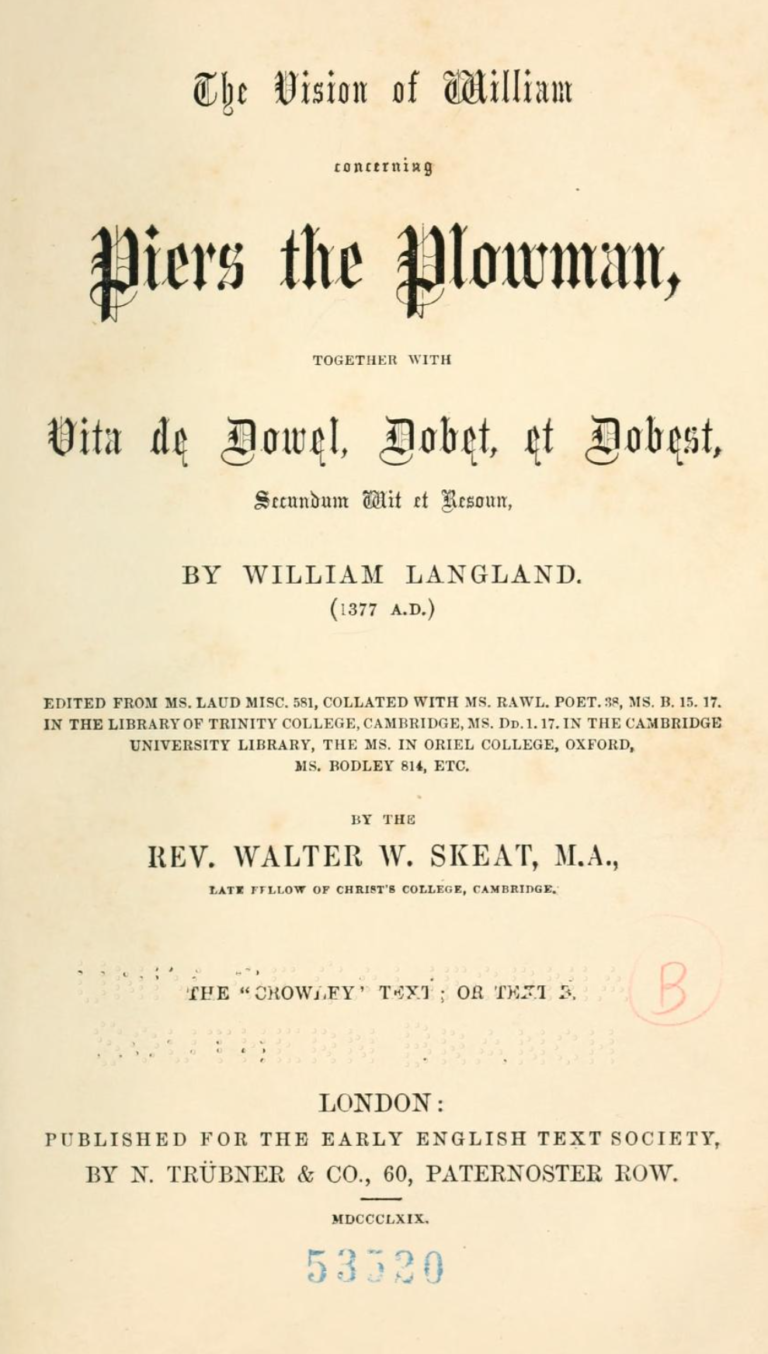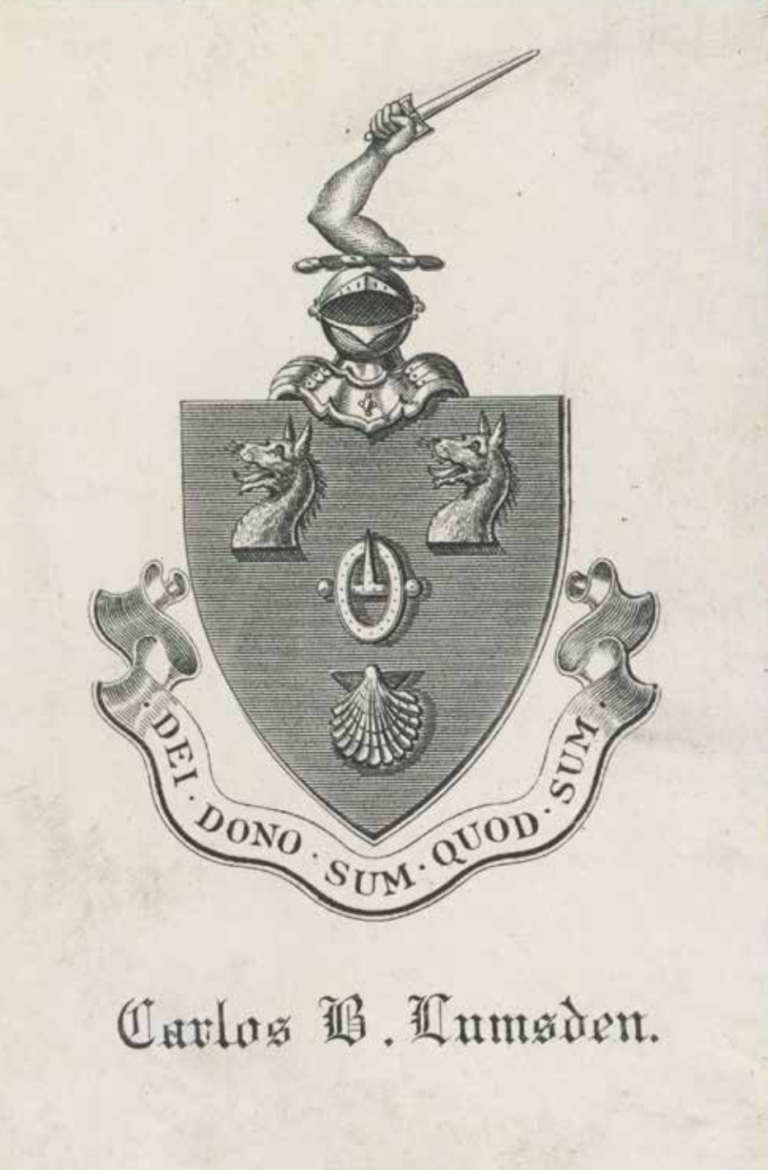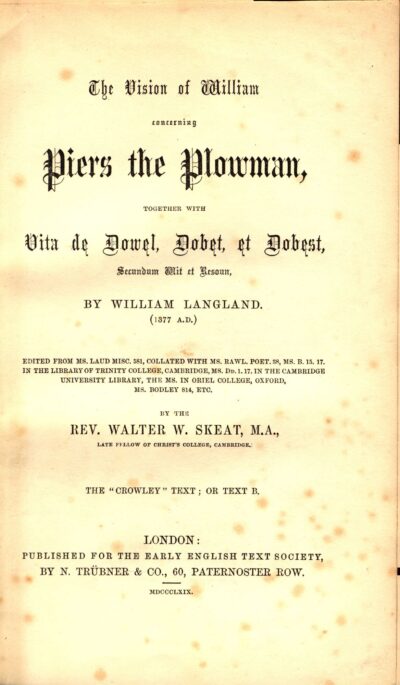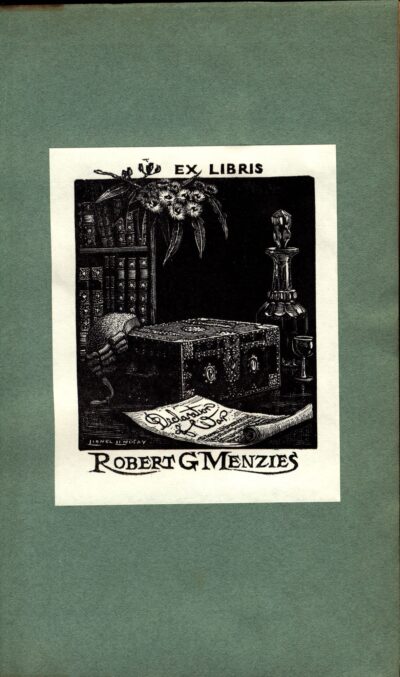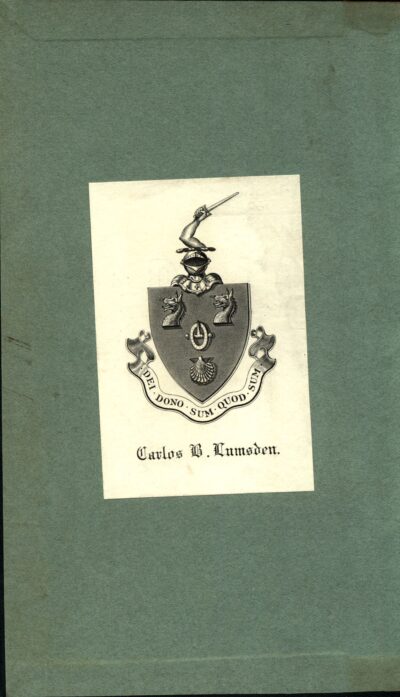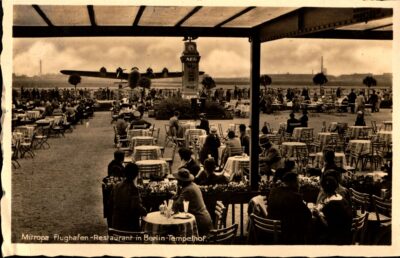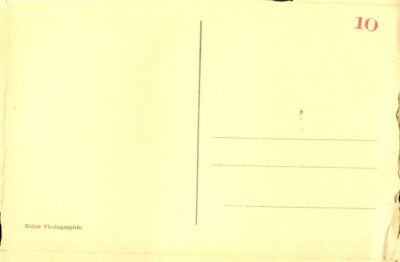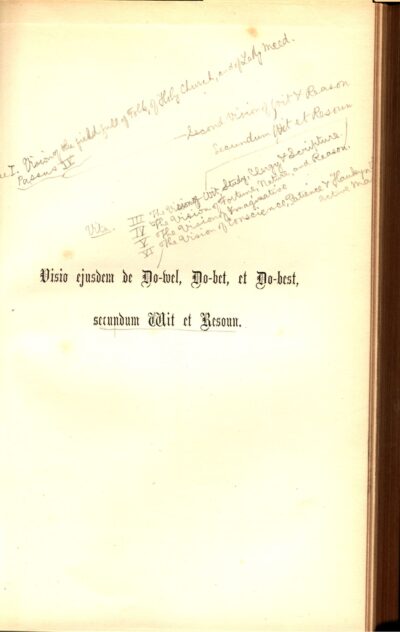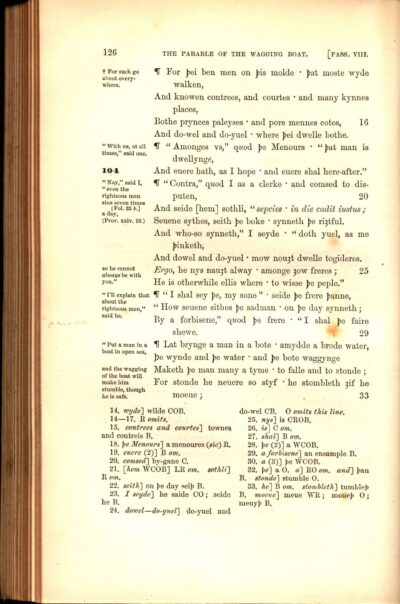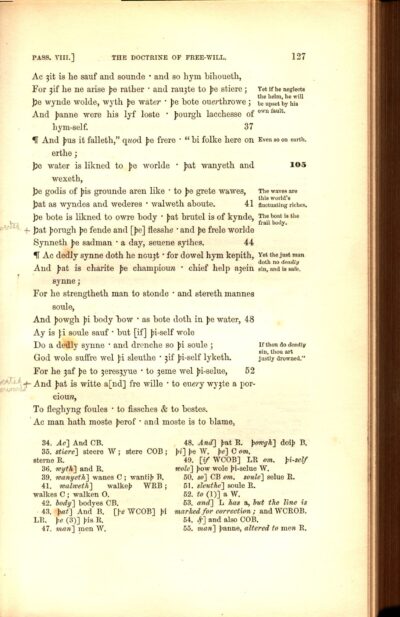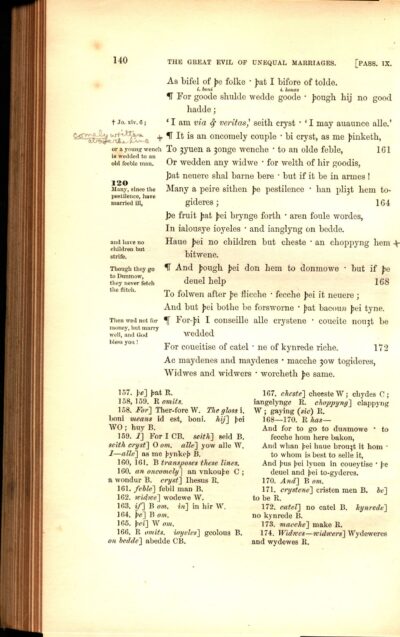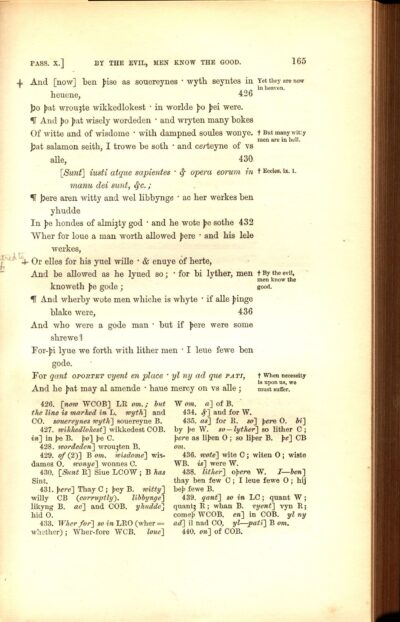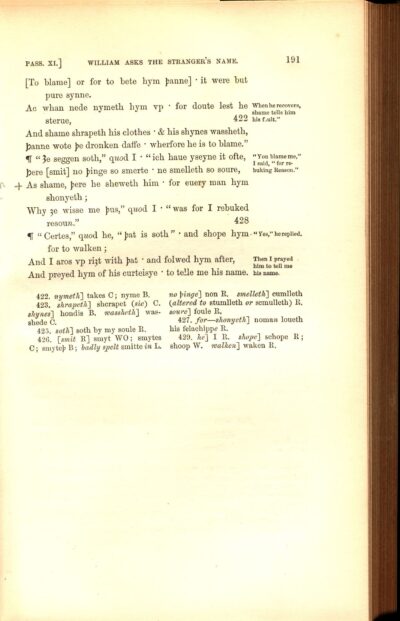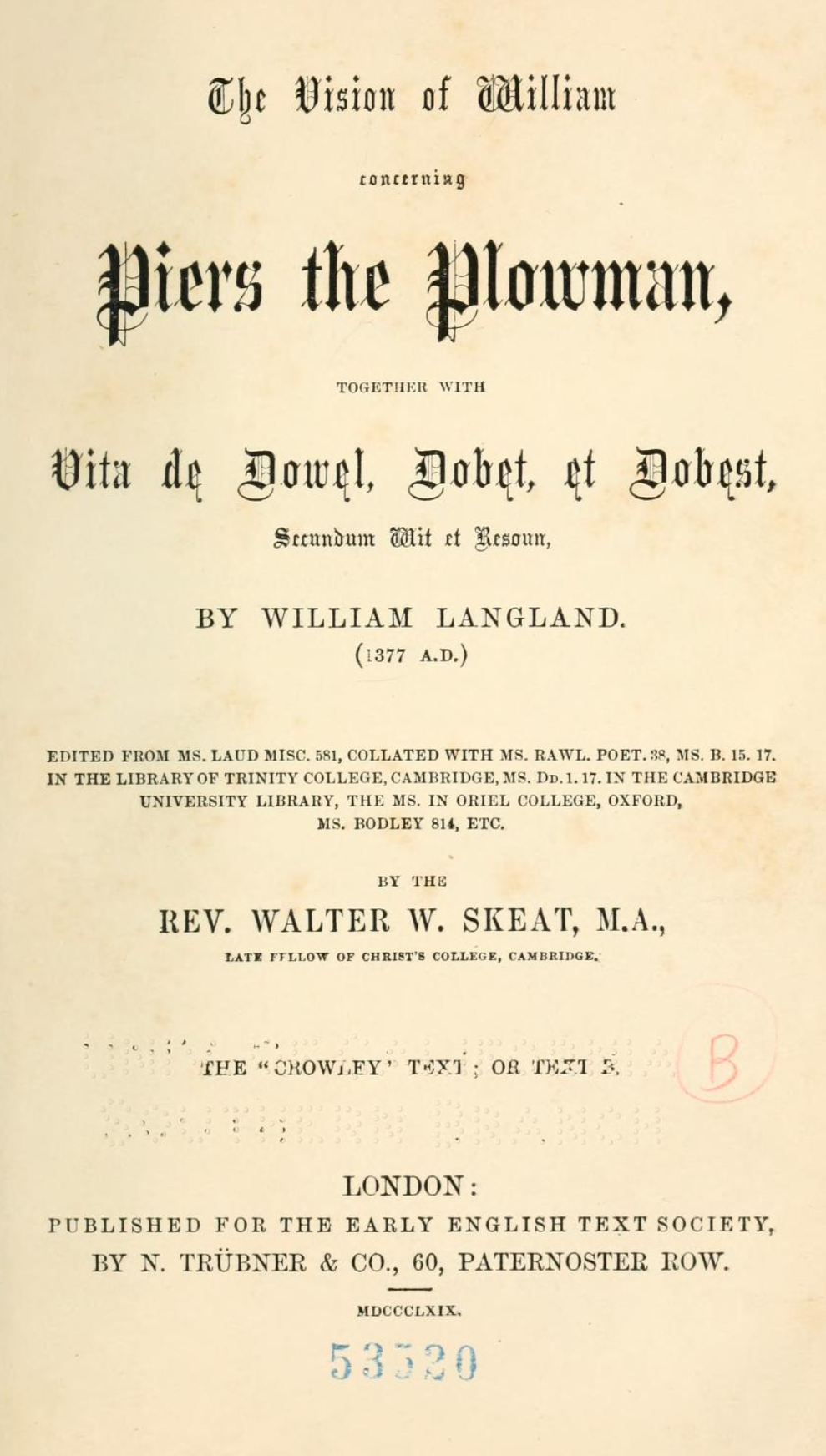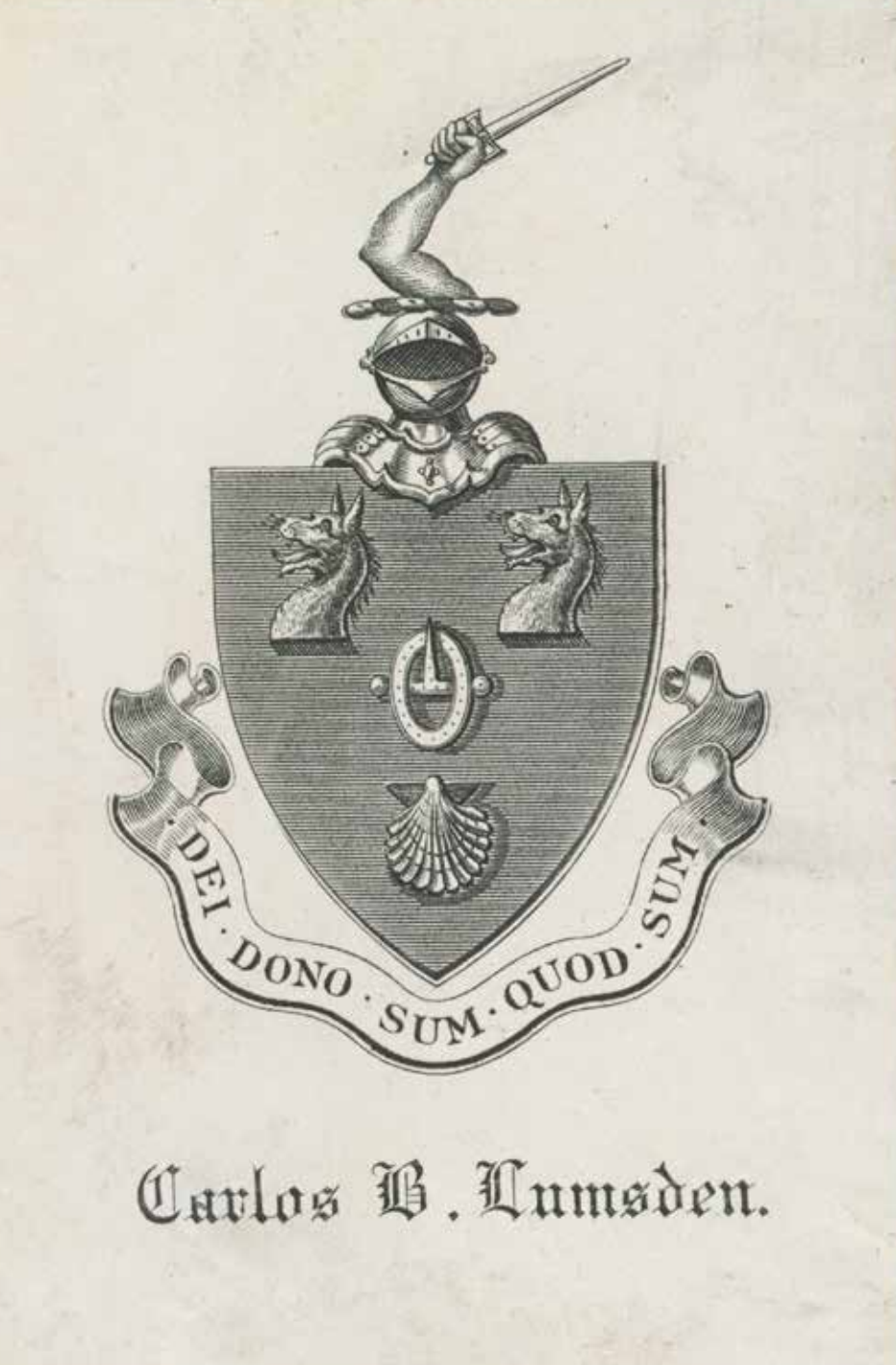William Langland, The Vision of William Concerning Piers the Plowman (1869)
Little is known about William Langland, other than that he lived in England in the 14th century and is the presumed author of Piers Plowman, an allegorical narrative poem considered to be one of the finest pieces of literature of its day.
The poem is set in summer in the Malvern Hills of the West Midlands, and features a narrator who falls asleep by a stream and proceeds to have a sequence of 22 dream visions which explore how to live a good Christian life. The poem is notable for its moral philosophy and biting criticism of political and ecclesiastical corruption, as well as for containing the earliest datable reference to the legend of Robin Hood. The latter comes in the description of a drunken and slovenly priest who boasts that while he might not remember the Lord’s Prayer, he can recite the ‘rhymes of Robin Hood’.
Menzies’s copy of the poem is remarkable, not only as an artefact of his interest in poetry and English history, but because its bookplate reveals that it was previously owned by historian and notable book collector Carlos Barron Lumsden. Lumsden was a Scotsman from an unusually prominent Catholic family, who read law at the Inner Temple, served in the Boer War, and came to write the Dawn of Modern England: being a history of the Reformation in England, 1509–1525. This was envisaged as a monumental three-volume work for which Lumsden spent great sums collecting a huge number of rare contemporary sources. Heavily laced with Lumsden’s Catholic perspective, the first (and only completed) volume defends medieval ethics and philosophy in what critics thought was a ‘polemic’ fashion. Given the significant Protestant majority of English-speaking book markets, the book did not sell well, and Lumsden was soon hounded by creditors from whom he fled to Australia.
There in 1912 he was forced to sell his book collection to Cole’s Book Arcade in Melbourne’s Bourke Street, a famous establishment which boasted that it housed two million bound works. Lumsden soon returned to Britain, where he would enlist in the First World War and ultimately lose his life fighting for King and Country, but his books remained in Melbourne, where a young lawyer named Robert Menzies frequented Cole’s and came to purchase Lumsden’s copy of Piers Plowman. He was not the only one to pick apart the once proud collection, as Australian historian Ernest Scott bought a 1570 edition of Polydore Vergil’s Anglica historia, and many more unique and valuable artefacts made their way from Lumsden, via shoppers, to the University of Melbourne, Melbourne’s Catholic Theological College and other library’s around the country. Others somehow crossed further oceans, and ended up in America’s Library of Congress, at Yale, and in expensive auctions at Sotheby’s.
All told, Lumsden’s books tell a fascinating story that highlights the value of printed works, and how lucky we are to have the Menzies Collection preserved in full and intact.
*For more details see Shane Carmody, “‘By God’s gift I am what I am’: Relics of the library of Carlos Barron Lumsden” La Trobe Journal 103 Shane Carmody (slv.vic.gov.au)
You might also like...
Sign up to our newsletter
Sign up for our monthly newsletter to hear the latest news and receive information about upcoming events.

